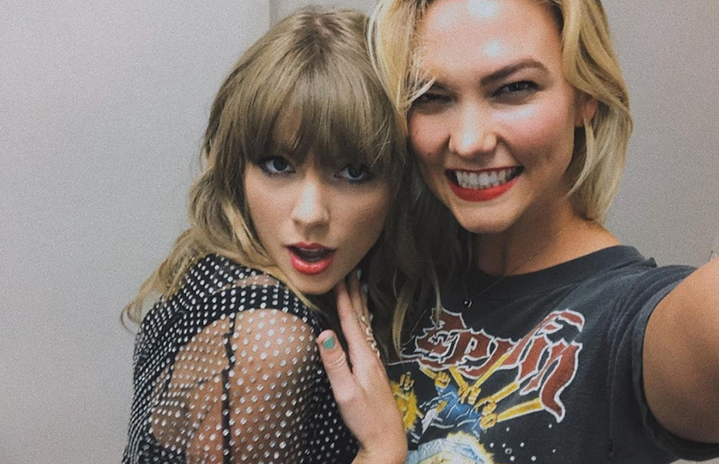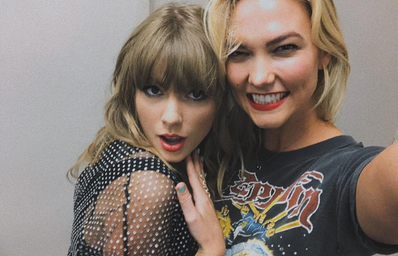Breaking up with a friend is one of the most challenging situations a person can go through, and research suggests it can actually feel worse than splitting with a romantic partner. However, ending a friendship is a common (and unfortunate) part of life — especially for college students who are constantly in a state of growth and transition. Whether you’re having a falling out with someone or you’re simply growing apart, if you’re considering ending a friendship, it can be difficult to know where to begin.
If you’re seriously considering severing ties, you might be wondering: When is the right time? Should I do it in person, or over text? Will there be a ton of drama? You may even feel the impulse to ghost your friend to avoid the awkward confrontation entirely. However, according to experts, there are ways to make the breakup process easier for both parties. If you’re considering breaking up with a friend, here are some tips and advice for how to break up while being respectful of your friend’s feelings and still honoring your boundaries.
What is a friend breakup?
According to Natalie Capano, MHC-LP, a New York-based psychotherapist, a “friend breakup” is an awkward experience when “friends slowly and mutually stop communicating.” The process can be gradual or sudden, and there doesn’t always have to be a clear reason for the breakup; sometimes, it’s just that they’re growing apart.
There are, however, many specific reasons why you might want to intentionally move on from a friend; for example, maybe they betrayed you, they bring toxic energy into the relationship, or you simply feel they aren’t a good influence in your life. Capano says that if you notice one person putting less time and effort into the friendship, it might be time to have a conversation.
It takes a lot of courage to break up with a friend, but before going through with it, make sure to stop and first identify the reasons for ending your friendship. According to Sara Weand, LPC, a Dialectical Behavioral Therapist based in Philadelphia, PA, you should ask yourself questions like: “Does the friendship feel one-sided, and you feel like you’re working harder at the relationship than the other person? Could it be that you’ve changed and no longer share similar interests and have drifted apart? Does your friend not respect your boundaries, or hang around other people who you feel are toxic?” If the answer to any of these questions is “yes,” Weand says it may be time to have a serious conversation with your friend. It can be challenging to come to terms with drifting apart with someone you care about. However, once your reasoning is identified, you may feel more confident in your decision to end the friendship.
Capano tells Her Campus, “Lots of people naturally grow out of friendships as they mature and develop different values or enter into different chapters of life.” Remember, friend breakups don’t always have to be a big falling out; it could just be that you’re in a different season of life than your friend and you’re ready for some time apart. In college, it can be easy to latch onto a friend group to form your identity, but these years are also a crucial time to develop your values and plans for the future. Friendships change, and you may find that your friends no longer fit into your future vision — and that is okay.
Why are friendship breakups so hard?
Like any breakup, saying goodbye to a friend is seldom easy. In a 2012 study published in Nature Reviews Neuroscience, researchers found that experiences of social rejection or loss of a friend can be “some of the most ‘painful’ experiences that we endure.” Whether you’ve been friends with someone for your entire life or only for a few semesters, sharing history with someone can make a friend breakup even tougher to initiate.
Weand explains that friend breakups are especially difficult for members of Gen Z, given that they’re in a crucial state of identity exploration — and losing a friend can feel like losing a part of your own identity. “When you’ve gotten to a point when you’ve decided the friendship isn’t working for you anymore, it can feel like you’re losing a part of yourself,” Weand tells Her Campus. “When there’s a loss, there’s typically grieving, and grieving is painful.”
It’s normal to feel grief when going through a breakup of any kind, so if you’re experiencing it through a friend breakup, be gentle on yourself, don’t be afraid to seek professional support, and remember — Taylor Swift and Adele’s new album are here to help you cope.
When you’re breaking up with a friend, be direct
When initiating a friend breakup, you may feel nervous about “saying the wrong thing” or making things more uncomfortable than they have to be. Unfortunately, discomfort is bound to occur at some point, but you can still lead the conversation with grace and respect for the person you previously considered your close friend. The key is to pinpoint the reasons you are breaking up with this person, be firm in your decision, and identify the outcome you want from the conversation; whether you decide to have it virtually or in person.
Jayne Warwicker, BSc, a life coach based in the U.K., says that instead of shying away from the “breakup” conversation, it’s important to be intentional and direct with your message. “Be clear and direct; don’t leave any room for ambiguity,” she says. “If you dither or back down, you will go away without the situation being completely resolved, and your friend will not know where they stand.” If it helps, take time to collect your thoughts and write down what you want to say beforehand so that you can be transparent, clear, and confident when speaking with your friend. After all, the last thing you want for either party is to leave the conversation feeling more confused and hurt than before.
Should you do it over text?
You might be tempted to send your friend a quick text message about parting ways to avoid facing their reaction in person, but according to Warwicker, texting may not be the best approach. “Think about how many times you have taken a text the wrong way or someone has misinterpreted your meaning when using social media,” she says. If you’re saying goodbye to a friend, the last thing you want is something getting misinterpreted or lost in translation — so consider breaking up in person instead.
“Breaking up in person shows your friend the importance of the situation, and also [shows] courage and conviction in dealing with [the breakup] head-on, and in a direct and clear way,” Warwicker tells Her Campus. You may also want to think about the way you would want to be broken up with and take that into consideration — would you want it to be over text, in a letter, or face-to-face?
Regardless of your chosen method, remember: You do have a history with this person, despite your ultimate choice to break up. Weand tells Her Campus, “Given that you have a relationship history, that means you once felt connected to that person more than just a mere acquaintance. Having a conversation — even if it is that of ending the friendship — shows that you respect the friendship, even though it may have reached its end…it provides a sense of closure.” She also says that if the relationship is abusive in any way, then you should avoid meeting up with the person in public; and ultimately, it might be safer to stick to a text or letter.
How to break up nicely, without hurting them
When framing how you want to convey your feelings, remember that a friend breakup isn’t about blaming the other person. Even if you have been hurt by this person in the past, rehashing the details will lead to more hurt feelings, and nobody wants that. Instead, the objective is to communicate clearly, validate your part in the relationship, be respectful of their reactions, heal, and eventually move forward — and what you say will have an impact on that.
If you’re not sure how to begin, Weand suggests communicating with “I-statements” in order to be clear and own your feelings about the friendship, rather than placing all the responsibility on the other person. After all, relationships are two-way streets. “Using ‘I-statements’ helps decrease the likelihood of defensive responses and gives you ownership over your own feelings and emotions,” she tells Her Campus.
Warwicker agrees that “I-statements” can be helpful, as they “allow you to take accountability for yourself and your actions without placing the burden solely on the other person.” She provides an example of how this would play out: For instance, “Instead of, ‘you are never there for me when I need you,’ you might say, ‘I need someone there for me when I am going through a bad time.” Being mindful of your communication and not placing blame on others will allow you to share how you truly feel, without the need of causing guilt and bad vibes.
If you’re not sure what to say during a friend breakup, here are some ideas for how to start:
- “Over the past few weeks/months, I’ve been feeling [emotion] about [topic] in our friendship, and I think it’d be a good idea to talk about it.”
- “Lately, I feel like we haven’t been talking as much. It feels like we are drifting apart, and…”
- “I think our friendship has run its course because of XYZ. I really care about you, and at the same time, I’m not sure this is sustainable for either of us.”
- “I’m sensing that we are moving in different directions in our lives, and I feel like I need to branch out on my own. I feel like our friendship is no longer serving a healthy purpose in my life and the new path I am going down, but I want to thank you for all the good times we have spent together.”
At the end of the day, think about how you would want someone to approach the situation if you were on the receiving end of a breakup. Would you want clear communication, honesty, validity, and a mutual understanding to move forward? The next time you have to initiate a friend breakup, keep those things in mind.
Friend breakups are a part of life, but they don’t always have to be miserable. Ending things with a friend can be a great opportunity to stand up for yourself and your well-being, and even move on to find your identity and a social circle that feels right for you. Bestie to bestie: Try this expert-approved advice and appreciate college as a time to grow.


